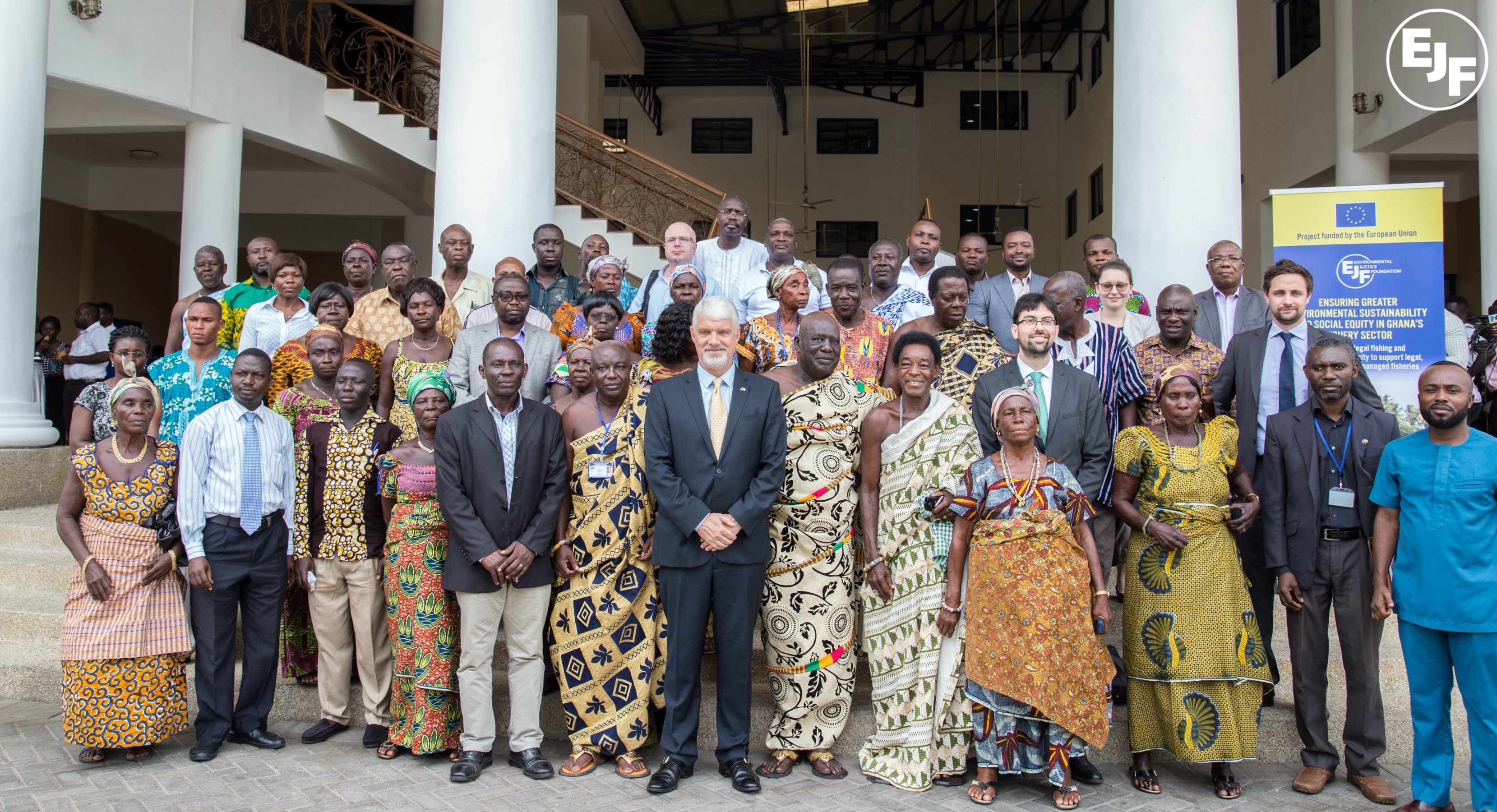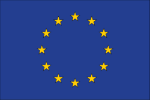
EJF and Hen Mpoano launch project to address illegal and unsustainable practices in Ghana’s fisheries

Project Funded by the European Union
Accra, Ghana: The Environmental Justice Foundation (EJF) and Hen Mpoano are launching a three-year project to promote food security and improved livelihoods for Ghana’s fishers, reducing illegal fishing activities and promoting the participatory co-management of fisheries.
Ghana’s fisheries are a significant contributor to the Ghanaian economy and coastal communities and are the main source of income for millions of people.
70% of Ghana’s fish catch comes from the small-scale artisanal sector, but overfishing, illegal fishing and poor management are threatening the long-term sustainability of the industry, hitting these small-scale fishers hardest.
While reforms are currently underway to address unsustainable fishing, their full implementation, and the future sustainability of fish stocks, will rely on the participation of all stakeholders, including government, businesses and, importantly, fishing communities.
The project aims to empower small-scale fishers to secure their tenure rights, implement a co-management approach to fisheries, combat illegal fishing and promote alternative livelihoods as a means to reduce dependence on the fishing sector.
“Ghana’s fishing sector is crucial to the country’s economic prosperity and the well-being of millions of its citizens - particularly those living in coastal communities who rely on it for their food, livelihood and income. We welcome the moves made by the Ghanaian Government to tackle the unsustainable and illegal fishing practices that have, for too long, plagued the sector. But vital to their success will be inclusion of local fishing communities; ensuring they have a seat at the table and that they are willing and able to take co-responsibility for the management of the fishing resources that they depend on.” Steve Trent, EJF Executive Director
“Fishing provides livelihoods for millions of Ghanaians, including countless local coastal communities. It is important that we empower these communities and ensure their voice is heard as artisanal fishers have a vital role to play if we want to retain the sustainability in the fishing sector. We need to secure these communities’ tenure rights, and ring fence their traditional fishing activities against external aggressions such as urbanisation or other economic activities.” Kofi Agbogah, Director, Hen Mpoano
The project will work across 10 districts in Ghana’s Central Region and Volta Estuary. The project’s key objectives are:
- Demonstrably improve sustainable fishing practices while effectively strengthening, monitoring and reporting on illegal fishing prevention efforts.
- Better empower small-scale fishers, vulnerable and marginalised groups to articulate their interests in fisheries tenure rights reforms and effectively implement fisheries co-management.
- Promote alternative livelihood options to small-scale fishing communities.
Notes to editors
- Global losses from Illegal, Unreported or Unregulated (IUU) fishing are between US$10 billion and US$23.5 billion per year. West Africa has the highest levels of illegal - or ‘pirate’ - fishing in the world, representing 37% of the region’s catch and costing it between US$828 million and US$1.58 billion in economic losses.
- Ghana’s fisheries are a significant contributor to the Ghanaian economy and coastal communities and are the main source of income for millions of people. They contribute 80% of the total fish catch. As much as 70% of this catch comes from the artisanal fishing sector.
- Year of overfishing, illegal fishing and poor management have left Ghana’s fisheries overexploited and its long-term sustainability under threat. To reach sustainable levels, the artisanal sector needs to see a reduction of 24%, the Inshore sector of 32% and the Industrial sector of 55%.
- The project “Ensuring greater environmental sustainability and social equity in Ghana’s fishery sector through a reduction of illegal fishing and strengthening capacity to support legal, sustainable and co-managed fisheries”, EJF and Hen Mpoano aim to contribute to greater environmental sustainability and social equity through a reduction of illegal fishing and strengthened capacity to support legal, sustainable and co-managed fisheries. The project’s objectives are:
- Demonstrably improve sustainable fishing practices while effectively strengthening, monitoring and reporting on illegal fishing prevention efforts.
- Better empower small-scale fishers, vulnerable and marginalised groups to articulate their interests in fisheries tenure rights reforms and effectively implement fisheries co-management.
- Promote alternative livelihood options to small-scale fishing communities.
- EJF will work with 59 communities across 10 districts in Ghana’s Central Region and in the Volta Estuary - which support over 260,000 people - including those most at risk from the impacts of illegal and unsustainable fishing practices